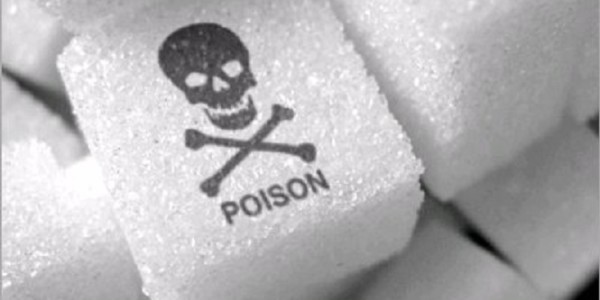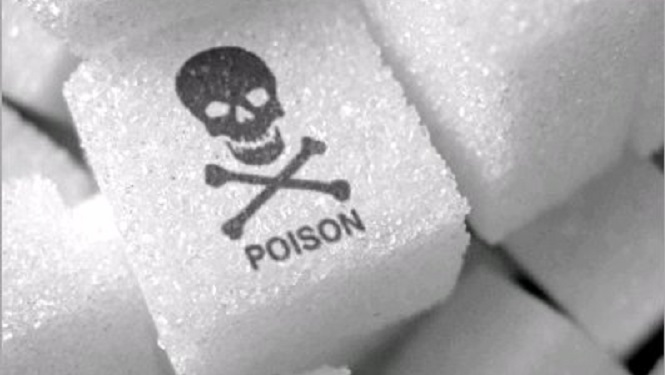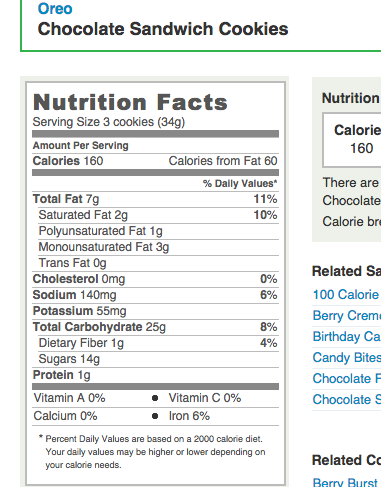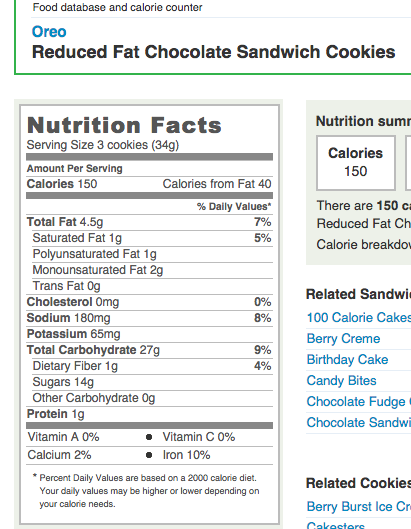Sugar is bad for you, right? That seems to be all we’ve been hearing lately. It is responsible for America’s weight gain and rising obesity. But the question I want to propose is, is that the real reason why?
I recently viewed the documentary Fed Up. If you don’t know anything about it, I’ll give you the rundown. The film looks at how most processed foods are loaded with sugar and cites this as the reason behind our rising health care costs, childhood obesity, and pretty much anything else you can think of.
It starts by mentioning at one point in time, everyone believed that fat was bad. Lots of scientific studies, dating back to the 70s, started holding it responsible for heart disease. Within the past couple of decades, food corporations jumped all over this and started removing fat from their foods.
But they had to add something else to make it palatable. That ingredient was sugar. This started a cascade of events that lead to people consuming too much sugar and eventually making our society extremely obese.
With each documentary you watch, it’s important to take it with a grain of salt. More times than not they try to make the other side look foolish and usually misreport some facts. In this instance, the creators of the film demonized sugar and held it solely responsible for the obesity issue.
Here’s the thing though, they never seem to talk about calories. Basic science says that if you take in more calories than you expend you will gain weight or if you take in less than you expend you will lose weight.
Josh Hillis, in his book Fat Loss Happens on Monday breaks it down like this: Your quantity of food is always related to your scale weight (1). Generally speaking, if you overeat calories your scale weight will go up and vice versa.
In Fed Up, they make some good points. Sugar is very addictive and it’s hard to tell when you are full if you eat a lot of it. Our bodies metabolize processed sugar very quickly so we are constantly hungry for more.
What it fails to mention is that since these foods are easy to over-consume, we tend to take in a lot more calories. Here are two products mentioned in the film. The one on the left is a regular serving of oreos and the one of the right is a serving of reduced fat oreos.
The big thing that jumps out is that the reduced fat oreos only have 10 fewer calories than the regular oreos. One servings size is only 3 cookies, and let’s be honest, most people will have more than that.
Let’s say for example, someone has 3 servings. In the regular oreos, that’s 480 calories and in the reduced fat that’s 450. So you save a measly 30 calories. Not that much right?
The point I’m trying to get across is that overall calories are still important for weight loss. This is where the documentary messed up; they didn’t explain that. This factor has a greater impact on our rising obesity rates than the amount of sugar consumed.
Granted, if you consume a lot of processed sugar you will most likely be consuming a lot of calories in the process. But consuming some sugar isn’t going to make or break your results. Quality of food is very important, but the most critical factor to seeing a drop on the scale is calories.
A journal article asked the question, “Is a calorie just a calorie?” The authors looked at several studies that placed participants in a caloric deficit. They found that when people reduced their calories, they lost weight plain and simple (2). Their macronutrient (carbs, protein, fat) intake was irrelevant.
Consider the nutrition professor who lost 27 lbs. in two months by eating nothing but twinkies (3). All he did was consume less calories than he burned on a daily basis. And you might be thinking, that can’t be healthy. Well, his “bad” cholesterol dropped 20% and he reduced reduced his triglycerides by 39%.
So what does all of this tell us?
I’m not recommending a twinkie or junk food diet 🙂 What I want you to take away is that reducing your calories or quantity of food is the first step toward weight loss.
To take this a step further, here are three ways you can start doing this. Use one or use them all.
1. Use a calorie counting app like My Fitness Pal.
You can input your calories and you’ll probably be surprised by how many calories are in some of your favorite foods. This will help you adjust accordingly.
2. Eat more real food.
Real food like meats, fruits, and veggies are much harder to overeat than processed food. Not only that but they tend to have fewer calories.
3. Cut your portions in half.
If you want to have that bowl of ice cream or beer go ahead and have it. But instead of 4 scoops, get 2 or instead of 2 beers just have 1. Buy cutting these things in half you start saving calories.
*****
As a whole, our society loves to demonize food and nutrients. Why? Because people will buy into it. It sells. The problem is people buy into it. This makes things confusing and exhausting trying to find what really works.
Is increased sugar intake a problem? Yes. But is it the cause of obesity and weight gain, no. You have to look at calories.
If you want to lose weight but are absolutely lost as to where to start, find out how many calories you take in on a daily basis and reduce it. This is one of the easiest things to do because you can keep eating the same but just change the portions. You’ll probably be shocked at how simple it is and how well it works.
References:
1. Hillis, J., & John, D. (2015). Fat loss happens on Monday. On Target Publications.
2. Buchholz A.C., et al. Is a calorie a calorie? Am J Clin Nutr. 2004;79(5):899S–906S.
3. http://www.cnn.com/2010/HEALTH/11/08/twinkie.diet.professor/
Photo Credit:
1. http://www.healthandwellbeingnews.com/how-excess-sugar-affects-your-body/
2. https://www.fatsecret.com/calories-nutrition/oreo/chocolate-sandwich-cookies
3. https://www.fatsecret.com/calories-nutrition/oreo/reduced-fat-chocolate-sandwich-cookies










2 Comments
Jennifer Boehm
May 23, 2015Love this one! Smart, to the point, easy to understand. Going to start finding out how many calories I consume in a food journal. Great way to start a healthy change!! Thank you for sharing!!
jarred@tidewaterfitness.org
May 24, 2015Thanks Jennifer, I’m glad you enjoyed it! That’s always a great place to start.